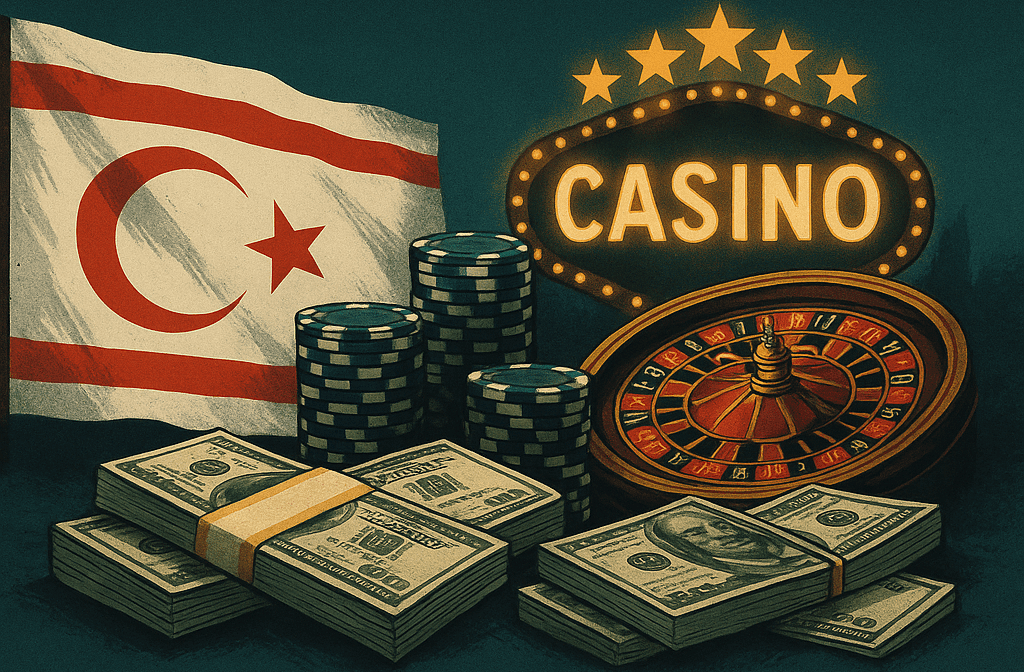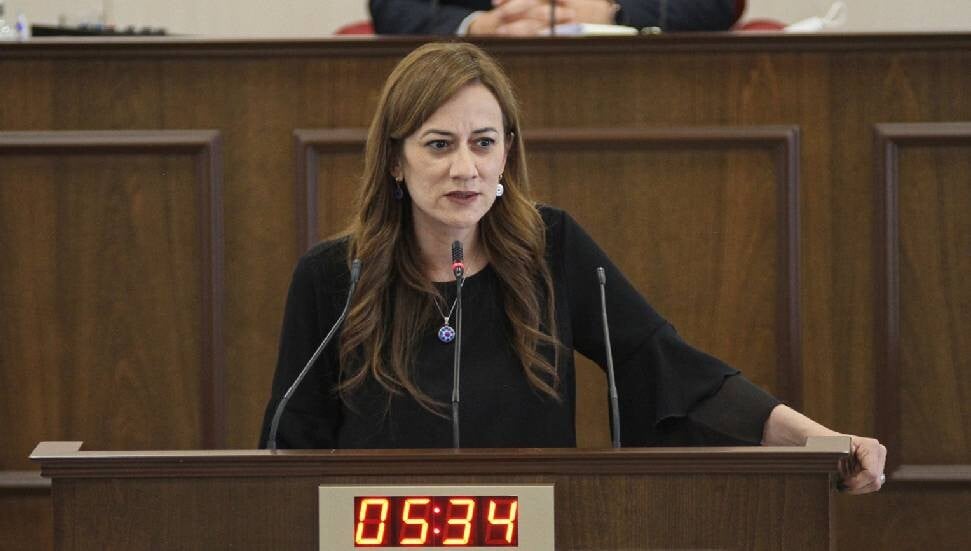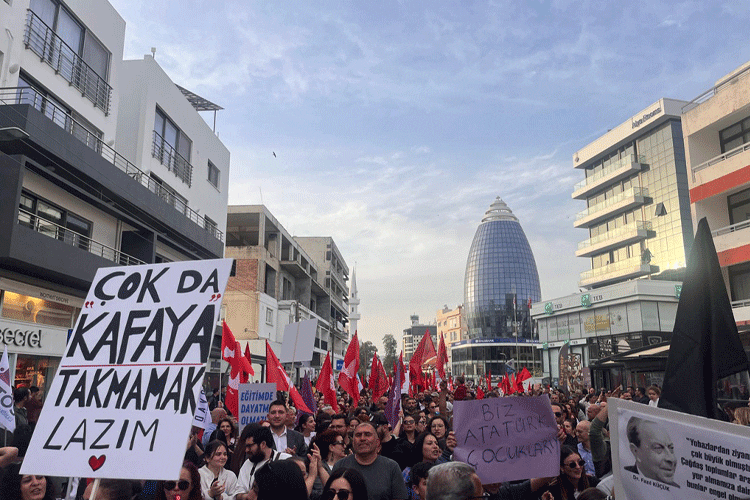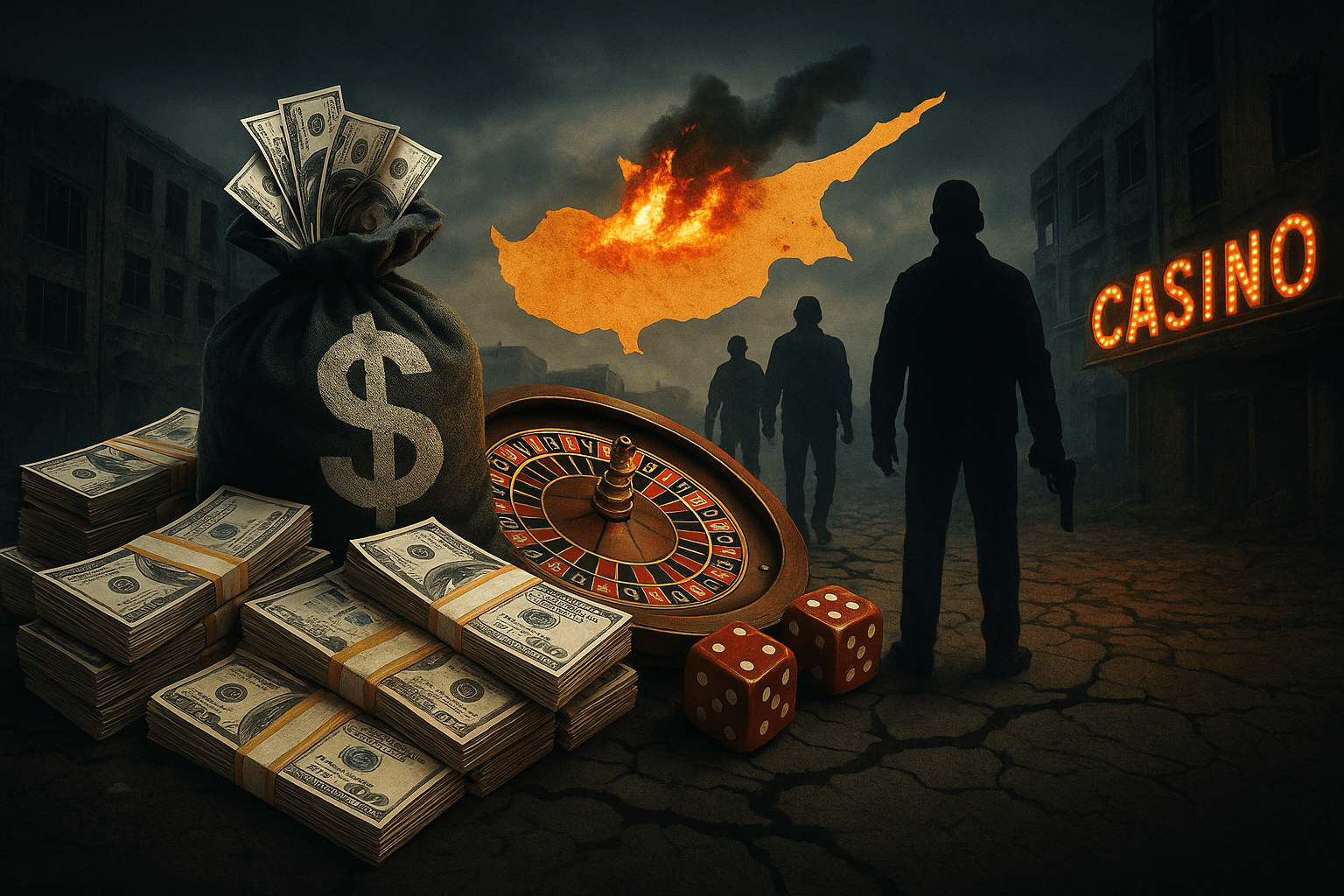New Gambling Law in Northern Cyprus Increases the Risk of Money Laundering
By Erdem / 09/06/25
 A sweeping reform to Northern Cyprus’s gambling legislation passed Parliament despite strong opposition. The law opens the way for casino investments while significantly weakening oversight. Observers point to Ankara’s leading influence on the process, warning that North Cyprus may become a new hub for money laundering.
A sweeping reform to Northern Cyprus’s gambling legislation passed Parliament despite strong opposition. The law opens the way for casino investments while significantly weakening oversight. Observers point to Ankara’s leading influence on the process, warning that North Cyprus may become a new hub for money laundering.
On the morning of June 3, 2025, after a 12-hour debate, the TRNC Parliament approved the “Games of Chance (Amendment) Law.” The vote concluded at 3:20 AM, with the ruling UBP‑DP‑YDP coalition voting as a bloc in favor, while the Republican Turkish Party (CTP) staunchly opposed it. CTP deputies denounced the law as “serving dirty money” and “handing our children to gambling.” They emphasized the involvement of “money laundering barons” and alleged direct influence from Turkey, signaling that this was no mere local legislative change but part of a wider political agenda.
Key Amendments in the New Northern Cyprus Gambling Law

Republican Turkish Party (CTP) MP Doğuş Derya
- Casino Zoning Limit Removed
Previously, casinos were restricted to certain regions and distances; the new law eliminates these limits—casinos can now open within 100 m of schools or city centers, with no urban planning or social impact considerations applied. - Softened Citizen Access Rules
Entry to casinos by TRNC citizens, once prohibited and punishable by jail, now only incurs a €50 fine; operators face a €1,000 fine. The law renders the ban effectively meaningless. - Tourism Usage Requirement Removed
Casinos no longer need to be tied to tourism purposes; contributions to tourism funds have been reduced from 70% to 53%—lessening public revenue and detaching gambling from its “tourism investment” guise. - Reduced Money Laundering Penalties
Penalties for money laundering have been downgraded from prison sentences to administrative fines capped at €5,000—a major regression in combating illicit finance. - Questionable Digital Oversight Mandate
While the law adds a requirement for electronic monitoring, details on who implements it and how independently the system operates remain unclear. Non-compliant venues may lose their license, but lack of transparency persists. - Unlimited Licenses, Investment Boom Enabled
The previous cap on casino licenses has been removed—projects pre-approved now automatically receive licenses, effectively turning the sector into a carefree free zone without state review. - Sector Autonomy Instead of Public Control
No new mechanisms for government oversight of casino social impacts, environmental planning, or public benefit have been introduced—existing scrutiny measures have been downgraded.
Turkey’s Role: Whose Interests Are Being Served?
 CTP MPs have repeatedly stated that this law was drafted with direct input from Turkey and vested capital groups, not for the benefit of Cyprus.
CTP MPs have repeatedly stated that this law was drafted with direct input from Turkey and vested capital groups, not for the benefit of Cyprus.
- MP Doğuş Derya declared: “You represent not the people, but dirty money. This law is advancing a system being imposed on Cyprus from outside.”
- MP Devrim Barçın added: “The law was produced under advisory from Turkey; the Assembly’s vote was mere formality—slavery to the barons has been legalized.”
Other critics highlight that although the government pledged modernization, opposition members say Turkey’s political pressure fast-tracked the bill—drafted in 2023, it advanced only with recent influence from Turkish capital stakeholders. They assert Northern Cyprus’s economic dependence on Turkey undermines its legislative sovereignty, with construction of new casinos already beginning before legal approval was secured.
Government backers framed the law as a “common-sense consensus,” but opponents like Ongun Talat dismissed it as a façade agreement—“a deal struck within the ruling party.”
North Cyprus’s Sovereignty Under Threat
Opponents frame the law not merely as allowing gambling, but as institutionalizing a system that prioritizes foreign commercial interests over democratic and legal principles. They argue it cements a long-discussed but now legally enacted Turkey-centric control structure in Northern Cyprus.
Dangers Ahead: Laundered Money, Crime Networks & Social Collapse
 The Games of Chance Law is more than a legal update—it structurally redefines the country’s future. On paper it seems lawful, but loose oversight, symbolic penalties, and boundless industry growth effectively create a façade of legality masking a loss of real control.
The Games of Chance Law is more than a legal update—it structurally redefines the country’s future. On paper it seems lawful, but loose oversight, symbolic penalties, and boundless industry growth effectively create a façade of legality masking a loss of real control.
🚨 Money Laundering Risks Escalate
Northern Cyprus’s banking infrastructure lacks global transparency standards. With small fines and weak oversight, monitoring the source of casino money becomes almost impossible—modernization certainly, but without enforcement capability.
International Example: Caribbean nations like Antigua and Saint Kitts landed on the FATF grey list due to lax gambling laws, leading to banking exclusions, capital flight, and diplomatic fallout.
🚨 Criminal Networks Gain Legitimacy
Unlimited licensing invites organized crime. With no social or environmental impact assessments, local voices are sidelined. Turkish and Middle Eastern investors are already making moves—this signals risk of human trafficking, drug trade, and illegal gambling, as seen in other poorly regulated jurisdictions.
🚨 Social Breakdown & Poverty
With casinos newly accessible to citizens (for a mere €50), the risk of addiction, debt, and social collapse among young unemployed populations is high. Wealth becomes concentrated in operators while families collapse. And ironically, tax revenue may shrink even as social spending rises.
🚨 Legal Camouflage, Lack of Regulation
Although legal, the law institutionalizes money laundering, prioritizes procedures over enforcement, and offers only token state control—resulting in what amounts to legalized criminal economy.
🚨 Cyprus as a Crime Hub
Far from becoming a benign gambling destination, the country stands to become:
- A regional crime center
- A financial black hole without transparency
- A pseudo-state with superficial sovereignty
Drafted under Ankara’s influence and designed to serve select investors, this law undermines the rule of law and public interest. Without public backlash, stronger oversight, and international monitoring, Cyprus risks sliding into a high-crime, socially fractured “island of crisis.”